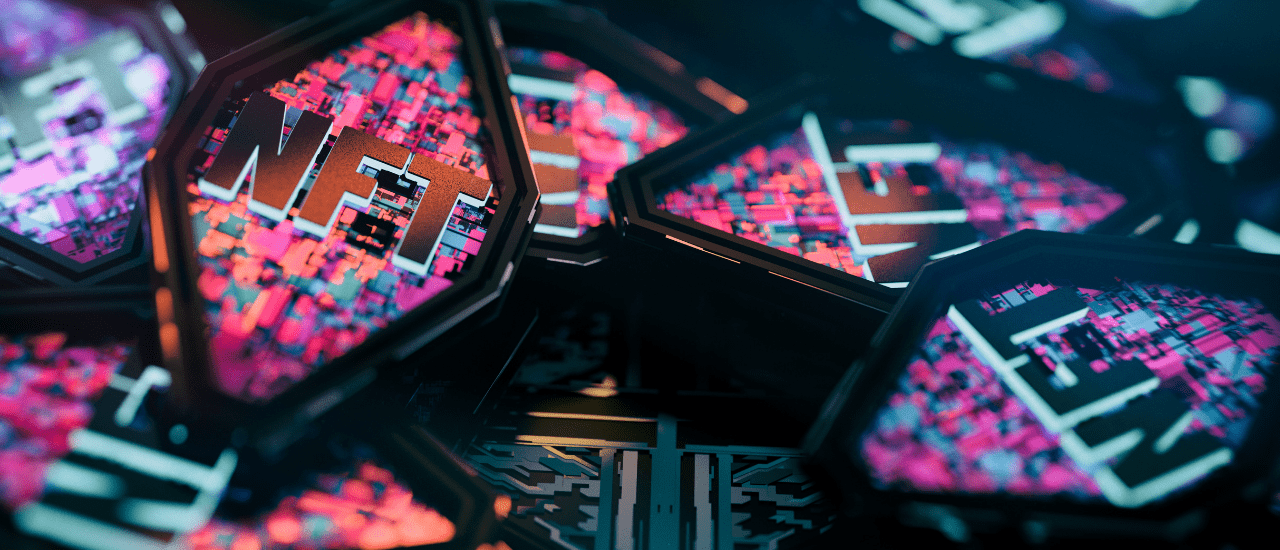
What Is NFT Integration - What It Means?
Non-Fungible Tokens (NFTs) have been a game changer in the realm of digital assets in recent years. Because of their potential to symbolize ownership and uniqueness of digital objects such as artwork, music, films, and even virtual real estate, NFTs have grown in popularity. So, let's go into the notion of NFT integration, addressing what it comprises, the benefits it provides, and the possible influence it might have on various sectors.
NFT Integration: Unleashing The Power of Digital Ownership
NFTs are cryptographic tokens built on blockchain technology, most commonly using Ethereum's ERC-721 or ERC-1155 standards. Unlike cryptocurrencies like Bitcoin or Ether, NFTs are indivisible and unique, meaning each token has distinct characteristics that set it apart from others. NFT integration refers to the process of incorporating NFT functionality into existing platforms, applications, or digital ecosystems. This integration empowers creators, developers, and businesses to leverage the benefits of NFTs and enable digital ownership experiences for their users.
Authenticity and Provenance
NFT integration enables the authentication and verification of digital assets. Each NFT contains a unique identifier and a record of its ownership history, ensuring the authenticity and provenance of the associated digital item. This is a significant advancement for artists, collectors, and creators as it allows them to establish and maintain a verifiable chain of ownership for their digital creations.
Tokenizing Real-World Assets
NFT integration extends beyond digital art and collectibles. It opens up avenues to tokenize real-world assets, including real estate, intellectual property, and even physical objects. By creating NFT representations of these assets, they can be bought, sold, and traded on various blockchain-powered marketplaces, enhancing liquidity and accessibility.
Royalties and Secondary Market Sales
NFT integration allows creators to embed royalties into their digital assets. As a result, they can earn a percentage of the proceeds whenever their NFT is resold in the secondary market. This provides artists with a sustainable revenue stream, even as the value of their creations appreciates over time.
Gamification and Virtual Economies
Integrating NFTs into gaming environments can revolutionize the concept of digital ownership within virtual worlds. Players can own unique in-game items, characters, or virtual land, which can be bought, sold, or traded with other players. NFT integration introduces the concept of true digital ownership, providing players with tangible value for their in-game investments.
Enhanced Collectibles and Fan Engagement
NFT integration enables the creation of digital collectibles and memorabilia that can be owned and traded by fans. This opens up new opportunities for fan engagement, as supporters can collect and display their favorite team's digital memorabilia or own limited-edition items associated with their beloved celebrities, artists, or franchises.
Challenges And Considerations
While NFT integration offers promising opportunities, there are several challenges and considerations to address:
Scalability and Energy Consumption
The current popularity of NFTs has raised concerns regarding the environmental impact of blockchain networks, particularly Ethereum, which is widely used for NFT creation and trading. Addressing scalability and reducing energy consumption will be crucial for widespread adoption and sustainability.
Intellectual Property Rights
The integration of NFTs raises questions about intellectual property rights and ownership. It is essential to establish clear frameworks and legal mechanisms to protect the rights of creators, copyright holders, and investors in this evolving landscape.
Market Saturation and Valuation
As the NFT market expands rapidly, concerns about market saturation and the long-term value of digital assets arise. Ensuring quality control, establishing standards, and providing transparency will be critical to maintaining trust and driving sustainable growth.
Final Words
The integration of NFTs has caused a paradigm change in how we view and trade digital assets. NFTs provide unprecedented potential for artists, collectors, and enterprises across several industries by using the power of blockchain technology. While there are still hurdles, the future seems bright as we investigate the tremendous potential of NFTs and their incorporation into our digital life.
